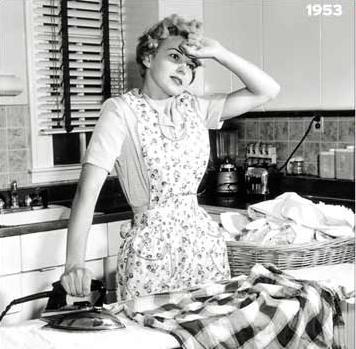Who were you, Kathleen? What were your fondest hopes, your most cherished dreams? How did life treat you? Did it unfold as you wished?
I’ve often pondered these questions, especially when looking at the only photograph I possess of my maternal grandmother (NB: it is not the photo above!). It was taken at my parents’ wedding in 1949 – a formal portrait of both sets of grandparents standing behind the newlyweds. Their expressions do not convey the joy of the occasion.
Kathleen – known as Kate or Kitty – looks stern, stony-faced and much older than her 49 years. There’s a slightly haunted look in her eyes that has always saddened me. But perhaps that’s because I know how her story ended. Less than two years after that photograph was taken, her life was cut short by a brain tumour that was discovered just two weeks before she died.
Shortly afterwards my parents moved to London, lugging a suitcase full of grief and leaving most of their relatives behind in Swansea.
Even at 86, my mum is still angry about what happened to her mother. She has told me many times that Kathleen was an intelligent woman who married beneath her, who could have done so much better for herself, who might have lived longer had her life been less arduous.
Kathleen May Ward was born in Deptford, south-east London, in 1900, firstborn of Edwin, a glass bottle packer, and his wife Sophia. She met my Welsh grandfather, Bert Jones, while they were both working at the munitions factory in Woolwich Arsenal during the latter years of the First World War. By all accounts he was a bit of a charmer and persuaded Kathleen to marry him, leaving her nearest and dearest behind to move to South Wales in 1920.
According to my mother, Kathleen lived a life of unrelenting domestic drudgery, raising five children almost single-handedly on a bare minimum of housekeeping money while Bert went to work – and the pub. Like many breadwinners of his generation, he rarely lifted a finger to help.
It seems that Kathleen had no identity beyond being a mother, a wife, a cook, a cleaner and a make-do-and-mender. I imagine a woman whose individuality was as mangled as her laundry, whose life was dominated by duty and obligation.
Even though her youngest daughter – my mother – followed her path and also became a stay-at-home mum, her second granddaughter (my sister came along in 1953 and I was born in 1957, six years after Kathleen died) decided as a teenager that a domestic life was not for her. I wrote in my diary at the age of 18 that the last thing I wanted was to become a housewife.
So you could say that Kathleen’s story, and my mother’s reaction to it, resulted in me rejecting motherhood and valuing freedom, independence and individuality above all else.
It’s as if I received the subliminal message that I should question the prevailing wisdom about women getting married and having kids: “Don’t go there – it’s a prison.”
I have enjoyed the luxury of pursuing a career that has enabled me to travel all over the world, and also embarking on a journey of spiritual growth and personal development that would have been unthinkable to women of Kathleen’s generation, whose struggle was about survival and raising a family.
Kathleen may never have allowed herself to hope or to dream, beyond producing healthy children and being a good wife. Perhaps that was her dream. Life didn’t seem to treat her particularly well. Did it unfold as she wished? Who am I to say? Maybe it did – maybe that is exactly what she signed up for.
The most poignant part of the story is that my mother was denied Kathleen’s support, encouragement and wisdom while she was raising her three children. And, of course, that my sister, brother and I never knew her. In fact, I did not experience being cared for by any of my grandparents.
My relationship with my dad’s parents and my mum’s father and his second wife (Bert remarried with what was then considered to be indecent haste) was cordial but distant – we only saw them in the summer holidays.
But even though all I have of my maternal grandmother on the physical plane is one photograph and my mother’s stories, I still feel a connection. There is something there on a cellular level, some psychic bond that is in my DNA. And I believe that what she has given me is resilience. Buckets full of it.
So thank you, Kathleen – even though you checked out early, you will never leave my imagination. I’m proud that you were such a great mother. I hope you would have been proud of me, and happy that I have been able to make choices that were never available to you.
A kind, nurturing and stoical lady who gritted her teeth and got on with life – that’s who I think you were, Kathleen.
This blog was originally written for Mary Ann Mhina’s Listening to Our Grandmothers project. Find out more at www.maryannmhina.co.uk

Leave a Reply